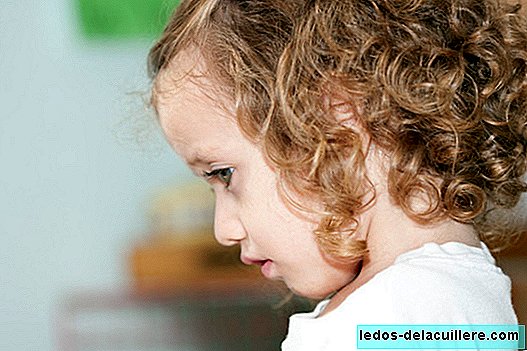Mutism is a voluntary or imposed silence, and when we talk about children, we talk about infant mutism or selective mutism. According to information from the Spanish Association of Pediatrics, this disorder is more frequent than we think and is estimated to occur in one in 500 children.
What causes it and what can we do as parents? These are some of the points we will see about child mutism, to try to understand why suddenly the child stops talking.
How does it manifest? What types of mutism exist?
Mutism is a speech disorder in children that can sometimes appear in isolation, but it can also occur when someone suffers from some Autism Spectrum Disorder, since the most common is that there is an underlying anxiety disorder.
According to information from FAROS, the information platform for health and child welfare at the Hospital Sant Joan de Déu Barcelona, there are two ways for child mutism to manifest itself:
- Delay in the appearance of language
- Acquired mutism
On this occasion we will talk specifically about the acquired mutism, which is when suddenly the child stops talking, as we mentioned at the beginning. In this case, mutism can be total or selective.
When we talk about total mutism, we refer to the sudden or gradual process in which the child stops speaking in its entirety. This makes it easier to detect, but it is also more difficult to treat. In this type of mutism, there may be some strong trigger, such as a traumatic experience.
At selective mutism It is when silence only occurs in certain situations or people, and in the case of children it usually occurs in school. This silence can be manifested with a reduction in language such as simply responding with monosyllables, or using gestures such as head or hand movements to express themselves.
Selective mutism is more common in girls than in boys and usually starts between 2 and 5 years of age, although Symptoms manifest more clearly after 5 years, which is when school age begins.
Causes of childhood mutism

According to information from the Madrid Psychology Center, selective mutism tends to be associated with social anxiety, separation anxiety or specific phobias, so in most cases the causes are psychological. Among the possible causes of childhood mutism, genetic, environmental, temperamental and neurodevelopmental factors have been considered.
There are also various situations that could predispose a child to suffer mutismsuch as overprotection by the family, family problems at home, emigration (such as getting to another place where no one is known or where another language is spoken), some trauma at an early age, the start of classes or other situations that cause anxiety.
Why is it important to treat it?
Because mutism is usually selective and manifests itself in the school environment, it can -seriously affect the child's social and school functioning, since it directly influences their academic results and also represents a limitation to be able to interact with teachers and classmates, according to a study.
On the other hand, although mutism lasts for a few years, it could continue to affect the adult lives of children who suffer from it, as another study found that it can make them more vulnerable to other communication difficulties and other problems such as insecurity or dependence on other people
How to treat infant mutism? what can we do as parents?
Because the causes of this can be very diverse, it is necessary to go with a professional, such as a psychologist or a speech therapist, to perform a full evaluation and analysis of the child who suffers, because each case is unique.
But yes, to treat mutism, It is important the participation of all the people that surround and live with the child who suffers: professionals, parents, teachers and classmates.
Some of the things we can do as parents to help are: avoid criticizing or judging his condition, motivating him to socialize with other people but without pressing him, giving him security and confidence, and above all, avoid actions that can strengthen mutism, like overprotecting him or trying to guess what he says without giving him the opportunity to speak.
With proper treatment and support, the infant mutism It can be taken care of, and thus prevent it from continuing to affect the child's social and academic life.
Photos | iStock
In Babies and more | Main language, speech or voice disorders: how to identify them and when to go to a speech therapist ?, My son is afraid to speak, selective mutism, inability to speak in certain situations












